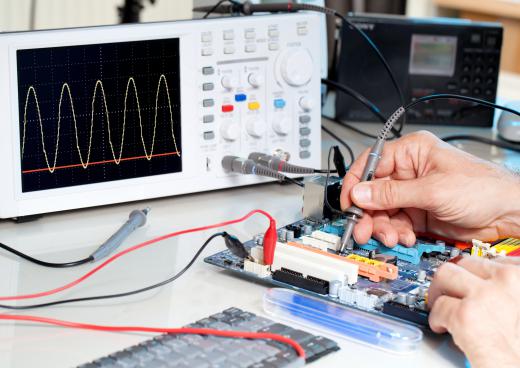The test and measurement industry centers on the production of tools used to analyze, validate, and verify measurements of electronic and mechanical systems. Due to the increasing need for greater accuracy and higher definition measurement, the tools involved in this industry are constantly developing to accommodate technological advancements in the industries they cater to. The test and measurement industry creates both general use and highly specialized tools and caters primarily to high-tech industrial, automotive, communications, and medical electronics industries.
There is a scientific principal that a perfect measurement can never be attained because the process of measurement will always alter in at least some minute measure the object being measured. The test and measurement industry, however, is not discouraged by this principal as it constantly strives for greater and greater accuracy to accommodate the greater use of micro technology and increasingly complex systems. Beyond a quantitative increase in accuracy, the industry also provides tools to measure things otherwise too complex to measure with other instruments.

A common tool used in this industry is the oscilloscope, which is used to measure and graph voltages. More recently, a greater tool has been developed: the logic analyzer, which measures and displays signals on a digital circuit and is capable of analyzing systems with more channels than the oscilloscope.
While many test and measurement tools are electronic in nature, the industry also provides high-definition optical and audio measurement devices. Optical devices range from the more familiar microscopes to more complex spectrometers which measure and graph such values as light intensity and polarization. Audio tools range from highly sensitive microphones to audio analyzers which graph various attributes of audio signals.

Because of the increasing complexity of measurements needed, the industry has more recently begun a rapid trend towards software packages. These packages work with test and measurement devices to codify, validate, and organize the data gathered by them. Software packages are most commonly provided to accompany the devices, which take the most complicated measurements and provide a large quantity of data which needs to be organized.
